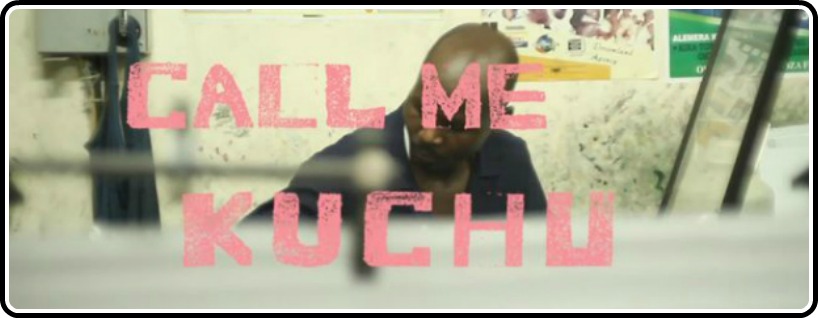While most political discussions today are leaning on topics like institutionalized spying by the likes of the NSA or the drone strikes okayed by the Obama administrations, very few social issues are as controversial and hot button today as the gay marriage debate.
With gay and lesbian members of this nation’s population still unable to marry the person they truly love, there has been a groundswell of support over the last handful of years, and all of that will likely be changing in just a matter of time.
However, things aren’t so hopeful around the globe, let alone in the African nation of Uganda.
The focus of a new documentary entitled Call Me Kuchu, the LGBT rights movement in that nation is an entirely different monster. Focusing almost entirely on the life and work of the nation’s first openly gay man, an activist by the name of David Kato, the film follows his story, and the story of he and the LGBT rights movement of Uganda and their fight against a bill that could make homosexuality punishable by death if passed.
Set against the backdrop of the bill being announced and then subsequently making its way through the government, Call Me Kuchu then takes a turn when, as almost a self-fulfilling prophecy, Kato is viciously and senselessly murdered, sending this film, and more so Uganda’s gay rights movement, into something previously unforeseen. Even more upsetting due to the win he just earned in a court case against a newspaper who published names, photographs and even specific data like addresses, of those men and women who are presumably gay. It’s this heartbreaking story of a nation willing to literally kill its own citizens due to something as base and human as the gender of the people they love, that makes this film the absolute gem of a documentary that it truly is.
Winner of the Teddy Award as Best Documentary at the 2012 Berlin International Film Festival, Call Me Kuchu is simply one of 2013’s best films, documentary or not. As topical as a documentary could possibly be today, this film is an emotionally devastating motion picture. Visually, the film isn’t all that special. A standard blend of archival footage and talking head interviews, the interviews themselves are absolutely breathtaking. Intimate and startlingly frank given the plight that their minority sees in that nation (it’s said that 97% at one time believed homosexuality was “wrong,”), they are simply a group of people fighting for the human right to love the person that he or she falls in love with, no matter the gender.
However, with Kato as the closest thing to a lead character here, his story is the strongest and most touching aspect. In a disturbing moment given the film’s conclusion, the moment that will stay engrained in the minds of anyone involves nothing more a meeting. Mentioned by a person during the meeting, a person briefly mentions that, as with most social movements, some people may have to die to really bring the movement to the forefront of people’s minds, in and outside of the country. With his death, things may not have changed as of this very moment (in June of last year the Ugandan government banned 38 NGOs it believes to have promoted homosexuality), but the movement is as strong as ever, and it is now a movement that has seen worldwide support ranging from the US government, to Gay Pride events in places like the UK.
Call Me Kuchu is one of this year’s best documentaries, without a shadow of a doubt. As emotionally devastating as any fiction or non-fiction film you’ll view all year, directors Katherine Fairfax Wright and Malika Zouhali-Worrall have created a moving tribute to a man who literally died for his freedom and hopefully, his death will help lead to the freedom of an entire portion of a nation’s population.




![Bergman Island (The Criterion Collection) [Blu-ray]](https://criterioncast.com/wp-content/uploads/2022/11/bergman-island-the-criterion-collection-blu-ray-400x496.jpg)
![This Is Not a Burial, It’s a Resurrection (The Criterion Collection) [Blu-ray]](https://criterioncast.com/wp-content/uploads/2022/11/this-is-not-a-burial-its-a-resurrection-the-criterion-collection-blu-ray-400x496.jpg)
![Lars von Trier's Europe Trilogy (The Criterion Collection) [The Element of Crime/Epidemic/Europa] [Blu-ray]](https://criterioncast.com/wp-content/uploads/2022/11/lars-von-triers-europe-trilogy-the-criterion-collection-the-element-of-400x496.jpg)
![Imitation of Life (The Criterion Collection) [Blu-ray]](https://criterioncast.com/wp-content/uploads/2022/11/imitation-of-life-the-criterion-collection-blu-ray-400x496.jpg)
![The Adventures of Baron Munchausen (The Criterion Collection) [4K UHD]](https://criterioncast.com/wp-content/uploads/2022/11/the-adventures-of-baron-munchausen-the-criterion-collection-4k-uhd-400x496.jpg)
![Cooley High [Criterion Collection] [Blu-ray] [1975]](https://criterioncast.com/wp-content/uploads/2022/11/cooley-high-criterion-collection-blu-ray-1975-400x496.jpg)